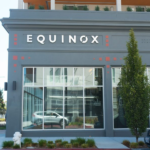That market lead alone has encouraged investors to bid up its stock price to more than $250 a share and a market cap north of $108 billion as of Tuesday. All told, DoorDash shares have more than doubled over the past year.
But if you look at DoorDash’s investment and M&A activity this year, you’ll see signs of a company that has quietly laid the foundation for a much grander ambition beyond restaurant delivery in the U.S. And if it’s successful—still a big if—DoorDash will someday be known as much more central to the technological fabric of restaurants and other local retailers around the globe than it is today.
In May, the company announced a double whammy of two proposed acquisitions: one, a nearly $4 billion deal for Deliveroo, which would give DoorDash a top three meal delivery business in the U.K., and a combined presence in more than 40 countries—with the intent of turning DoorDash’s core restaurant delivery operation into a truly global one. (DoorDash previously acquired Finland-based Wolt in 2022 for around $8 billion in an all-stock deal.)
In the background, DoorDash has continued to aggressively go after other types of consumer spending, too, signing delivery partnerships with retailers big and small across grocery, pharmacy, pet, sporting goods, and alcohol categories as well.
Taken together, DoorDash is laying out an ambitious vision—it’ll take time to judge if it’s too ambitious and distracting or as prescient as its suburban delivery move—to become a much more comprehensive technology player for restaurants and other brick-and-mortar retailers across the globe. At the same time, even with a market cap of $100 billion–plus, the company still has potential for considerable growth within its core business of restaurant delivery in markets around the world.









